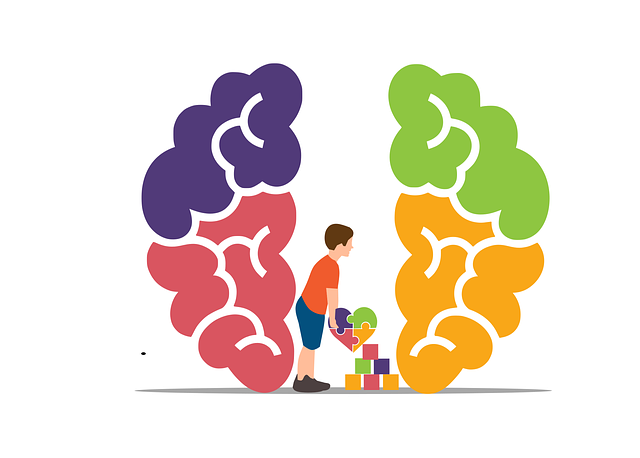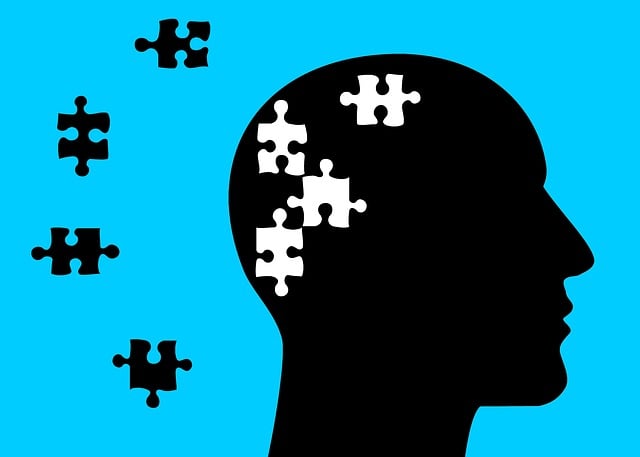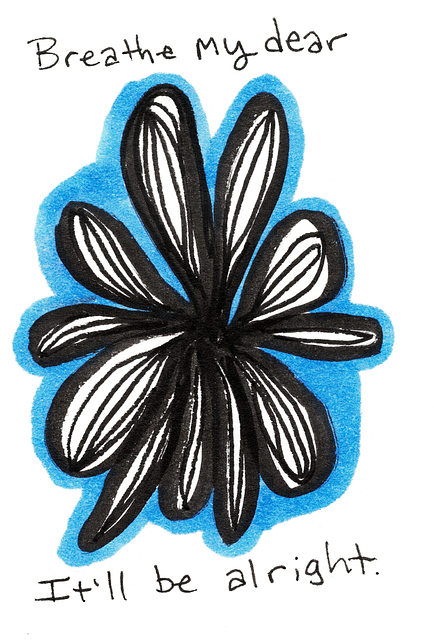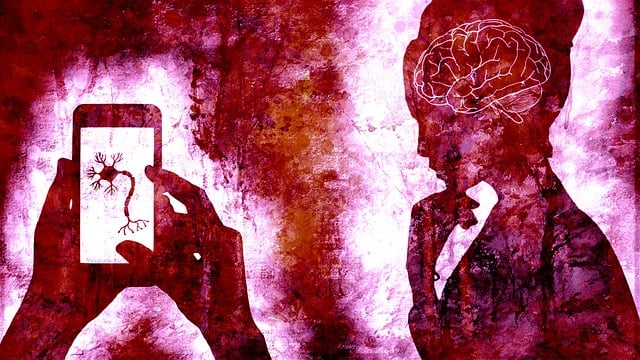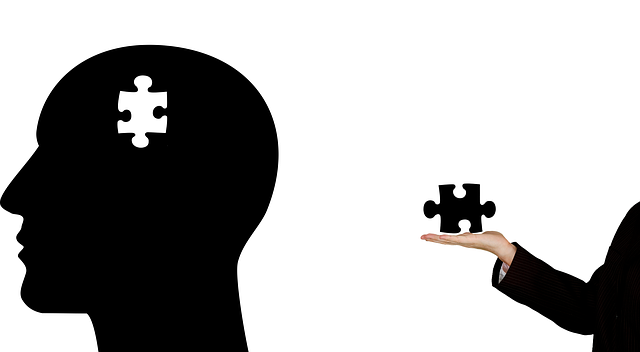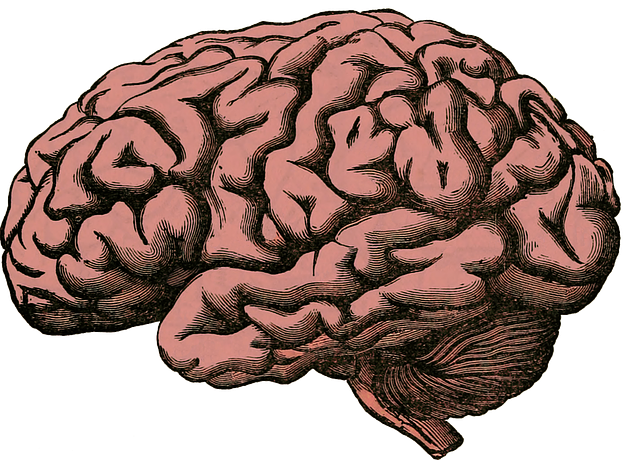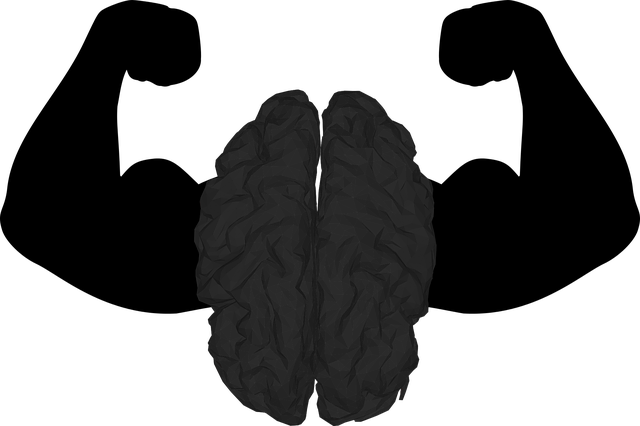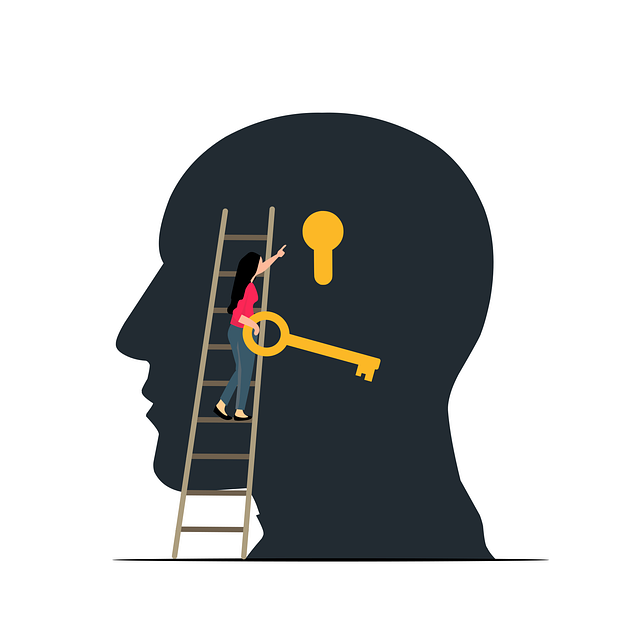Mental illness diagnosis challenges, particularly for conditions like depression and anxiety with overlapping symptoms, lead to high misdiagnosis rates (up to 30%). Englewood American Sign Language Therapy (EASLT) offers a unique solution by combining thorough assessments, multifaceted approaches using patient histories, observations, and sign language communication tools, benefiting diverse populations facing cultural and linguistic barriers. This specialized approach enhances diagnosis accuracy, reduces stigma, and improves patient outcomes, especially for deaf and hard-of-hearing individuals. EASLT's integration of ASL into therapy sessions fosters trust and empowers therapists to address unique mental health needs of deaf clients through evidence-based practices and culturally sensitive techniques. Building supportive networks through patient education, community outreach, and healthcare provider cultural competency training further enhances diagnostic accuracy and overall mental health care.
Mental illness diagnosis accuracy is a critical area of focus in healthcare, with misdiagnosis rates varying significantly. This article explores efforts to improve diagnostic accuracy, focusing on innovative approaches like the Englewood American Sign Language (ASL) Therapy, which enhances communication and understanding. We delve into evidence-based diagnosis techniques and highlight the importance of building supportive networks through patient education and community outreach. By integrating these strategies, mental health professionals can strive for more precise and timely diagnoses.
- Understanding the Challenges: Misdiagnosis Rates and Their Impact
- Englewood American Sign Language Therapy: A Unique Approach
- Enhancing Diagnosis Techniques: Evidence-Based Practices
- Building a Supportive Network: Patient Education and Community Outreach
Understanding the Challenges: Misdiagnosis Rates and Their Impact

Mental illness diagnosis is a complex process, often fraught with challenges that lead to significant misdiagnosis rates. Studies show that up to 30% of individuals receive incorrect initial diagnoses, impacting their treatment plans and overall well-being. This is particularly concerning given the diverse nature of mental health conditions, which can present with overlapping symptoms. For instance, depression and anxiety disorders share many common indicators, making it easier for healthcare professionals to confuse one for the other. Such misdiagnoses can delay access to effective treatments, leading to prolonged suffering and potential complications.
Englewood American Sign Language Therapy (EASLT) highlights a critical aspect of these challenges. ASL therapists emphasize the importance of thorough assessments and multifaceted approaches in mental health diagnosis. By employing techniques like detailed patient histories, observations, and sign language-based communication tools, EASLT aims to enhance accuracy. This is especially relevant for diverse populations, as cultural and linguistic barriers can further complicate diagnosis. Additionally, mental health policy analysis and advocacy play a pivotal role in addressing these issues, suggesting improvements in training, resource allocation, and resilient building initiatives to combat misdiagnosis rates and promote effective depression prevention strategies.
Englewood American Sign Language Therapy: A Unique Approach

Englewood American Sign Language Therapy offers a unique and innovative approach to mental health treatment, specifically tailored for deaf and hard-of-hearing individuals. This specialized therapy recognizes the significant challenges faced by this community when accessing traditional mental healthcare services. By incorporating American Sign Language (ASL) into therapy sessions, practitioners bridge the communication gap, ensuring that every patient receives personalized care. This method not only enhances understanding but also fosters a sense of comfort and trust, encouraging open dialogue about sensitive topics related to mental wellness.
The Englewood ASL Therapy model goes beyond simple translation services; it incorporates cultural sensitivity and specific therapeutic techniques. Therapists are trained in both ASL and mental health counseling, enabling them to create a supportive environment where patients can express their feelings and concerns freely. This dual expertise allows for effective mood management and risk mitigation strategies tailored to the unique needs of deaf individuals, contributing to improved mental wellness outcomes. Additionally, this approach can be extended to support family members and caregivers through specialized education and guidance on ASL communication in mental health contexts.
Enhancing Diagnosis Techniques: Evidence-Based Practices

Mental health professionals are continually refining diagnosis techniques to ensure accuracy and effectiveness. Evidence-based practices play a pivotal role in this process, offering validated methods that have been rigorously tested and proven successful. By integrating these strategies, practitioners can improve diagnostic precision, especially for conditions like depression, anxiety, and schizophrenia—areas where early detection is crucial.
For instance, the use of structured clinical interviews and standardized assessment tools, such as those employed by Englewood American Sign Language Therapy, enhances consistency in diagnosis. These evidence-based practices allow healthcare providers to gather comprehensive patient histories, identify subtle symptoms, and make informed decisions. Furthermore, self-esteem improvement techniques, conflict resolution strategies, and burnout prevention strategies for healthcare providers can indirectly contribute to accurate diagnoses by fostering better communication, patient engagement, and sustained clinical focus.
Building a Supportive Network: Patient Education and Community Outreach

Building a supportive network is a pivotal strategy to enhance mental illness diagnosis accuracy and patient outcomes. Encouraging open dialogue begins with educating patients about their condition and empowering them to actively participate in their care. Englewood American Sign Language Therapy, for instance, plays a crucial role in reaching and assisting deaf or hard-of-hearing individuals, ensuring they receive the same quality of mental healthcare as their hearing counterparts. Community outreach programs can further bridge this gap by providing accessible resources, workshops, and support groups tailored to diverse populations, fostering an environment where individuals feel comfortable seeking help.
Through patient education, individuals learn effective communication strategies, mood management techniques, and gain a deeper understanding of their illness. This knowledge equips them to articulate symptoms accurately, facilitating better diagnosis from healthcare providers. Moreover, when communities come together, they create a safety net that normalizes mental health discussions, reducing the stigma associated with seeking treatment. Such initiatives complement Healthcare Provider Cultural Competency Training, ensuring professionals are equipped to offer empathetic and culturally sensitive care, thereby improving overall diagnostic accuracy and patient satisfaction.
Mental illness diagnosis accuracy has room for significant improvement, as misdiagnosis rates underscore the need for innovative approaches. The Englewood American Sign Language (ASL) Therapy initiative exemplifies a unique method that integrates visual communication, benefiting diverse patient populations. By combining evidence-based practices with patient education and community outreach, we can enhance diagnostic techniques and foster more precise, supportive healthcare environments. Efforts like these are crucial steps towards ensuring individuals receive the appropriate care for their mental health needs.

